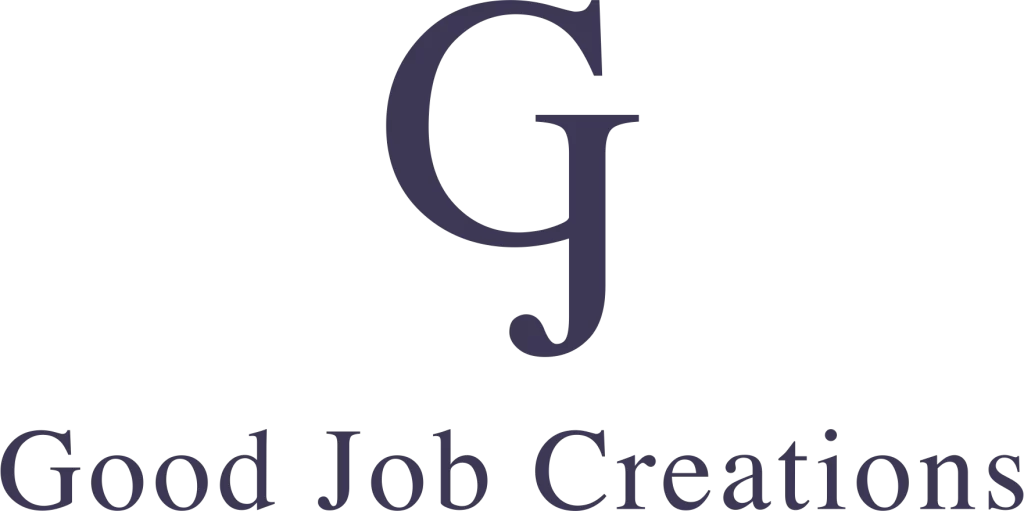Written By: Destiny Goh
1. How do you find time to reskill and upskill when we are always so busy and tired?
First, understand the purpose of reskilling and upskilling: what is there a need for you to do so, and what benefits will it bring to your career or personal life?
People prioritise and intentionally set aside time for what is important to them. Here are some actionable steps you may want to consider as a busy working adult:
- Start small: Set aside 15-30 minutes for learning purposes. This creates a sense of urgency to absorb as much as possible within the timeframe. Then, you can gradually increase the time spent on each learning session—consistency is key.
- Setting specific goals: This action gives you a clear view of what you would desire to achieve. Start with a quarterly goal and perform weekly check-ins on your progress and celebrate small wins.
- Adopt microlearning: Break down what you want to learn into bite-sized chunks that you can easily fit into short breaks or idle time (travelling or commuting). It helps you retain information and have a better understanding that improves retention.
- Invite others to journey with you: Surround yourself with like-minded individuals or join communities that are journeying through this process. These individuals can keep you accountable and exchange helpful advise and resources.
2. I intend to make a mid-career switch, but unsure which field I want to pursue, how can I make a wise decision?
Making a mid-career switch requires careful consideration of various aspects, here are some key pointers before you make the bold switch:
Assess your skills and interests: Identify your transferable skills and hard skills. This self-reflection can reveal potential new career paths that align with your strengths and interests. You may consider building a skill based on interest or what you’re already good at; however, knowing what your individual ‘burnout’ skill (skills you excel at but do not use often) and try to avoid or minimise placing it as your core skill in the role you are doing if possible.
Research growth sectors: Look into industries that are sustainable with strong future prospects. You may see the full list here.
Analyse and assess your financial implications: Career changes often result in salary adjustments that may affect your idea of financial stability, and for some, they may impact your family who are dependent on you.
Assessing your financial implications will lead you to create a realistic budget for potential income fluctuations, any new expenses incurred and whether if it will cause an impact on your long-term financial goals.
Seek professional guidance: Consider consulting with a certified career coach who can help you evaluate and identify suitable options based on your profile, skills and aspirations. They have the potential to offer you a range of helpful advise and insights that can help you create a strategic pathway of change.
Explore training opportunities: Research programs like the SkillsFuture Career Transition Programme (SCTP) offers training in in-demand fields such as project management, cybersecurity, and sustainability. See our list of learning platforms here.
3. How to negotiate for higher compensation if we feel we deserve more?
- Research and prepare: Know your market value by researching industry standards and salary ranges for your position and title. Leverage the use of Salary Guides as your reference for benchmarking and gauge.
- Quantify your value: Highlight your achievements and the value you brought to the organisation; if possible, present them in numbers and data, e.g., ‘Because of this new process I have implemented, it has helped the company saved about 20% of the monthly expenditure on xx’.
- Positively and clearly frame your requests: It will benefit you to present your request(s) on how it will stand to benefit the company; emphasise how your increased compensation will lead to improved performance, result and productivity.
4. Which jobs are high in demand in Singapore?
Ministry of Trade & Industry (MTI) reported Singapore’s GDP (gross domestic product) at 3.5% in 2024; the economy was primarily driven by manufacturing, wholesale trade, and finance and insurance sectors. There is a continued demand for job in sectors such as Agritech, Financial Services, Green Economy, Healthcare, Infocomm tech, Maritime, Semiconductor, Construction, Wholesale trade and transportation and storage.
For the full list of exact job titles, click here to see the full list.
5. In a company where there is favoritism especially gender preference for promotion, how can I best navigate through this?
Navigating gender-based favoritism, especially in promotions, can be challenging. We believe every individual should be rewarded based on merit and not social construct.
Here are some insights we can offer to help you navigate through this situation.
- Record your achievements
Keep a detailed account of your work accomplishments, projects and success. These can act as proof of your contributions to support your claims and counter against biased statements or decisions.
- Tactfully address the situation
This is not an opportunity for confrontation but rather to handle the situation in a tactful manner. Instead of fronting your conversation with accusation, try framing it toward asking for new opportunities or offering to contribute your skills in different areas of work. Don’t hesitate to advocate for yourself; you can exercise diplomacy by saying, ‘I’m committed to our team and the company, and want to be part of an organisation that values my contributions; I may need to explore other opportunities if we cannot align on this.’
- Be assertive:
Take proactive steps should you feel that you are constantly overlooked for new opportunities. Schedule regular check-ins with your manager to discuss your performance and career goals. You may want to inquire if there are any concerns regarding your ability to handle new responsibilities.
Should the problem persist, you may seek professional advice from trusted colleagues. Remember that your discussion focuses on finding constructive solutions rather than criticising the party.
Read our article to find out how you can best navigate through this situation.
6. How can professionals prioritise valuable skills in a fast-changing market and stay adaptable without constantly chasing trends?
To stay adaptable while prioritising valuable skills in a fast-changing market without constantly chasing trends, professionals should develop a balanced skill set that combines technical expertise, essential & transferable skills, and a growth mindset. Here are some actionable you can consider:
Develop a strong foundation of core skills: Focus on building fundamental skills such as critical thinking, problem-solving, data analysis, and digital literacy. These skills are transferable across industries and roles with its ability to help you adapt quickly and remain relevant.
Cultivate your essential (soft) skills: Invest in developing skills such as communication, creativity, leadership, and emotional intelligence; these are valuable and can be challenging to automate, but also crucial for long-term career resilience and overall job satisfaction. You can build these skills by interacting, observing, and acquiring feedback from trusted aides, then put what you have learned into practice.
Focus on adaptability and learning agility: Develop your ability to learn quickly and apply new knowledge where it’s needed. You can build this skill by putting theories (what you learned) into practice, whether it’s through quizzing yourself, teaching someone, or sharing what you learned. Foster a habit of curiosity by trying new things, seeking feedback for your work, and learning from reliable sources and from the experiences of others.
This habit helps you master new skills and knowledge at a faster rate and helps you adapt to new situations/environments much easier without the need to constantly chase trends.
Align your skills with long-term career goals: Through self-assessments, you can identify your career aspiration, interests, and existing and required skills to create a development plan.
You may do so using psychometric tests such as RIASEC or Knowdell Card Sort. If you need professional perspectives, speak to trusted aides or a career counsellor for a clearer interpretation. Then, focus on developing and refining the skills that align with them, you may choose to engage in professional development activities such as certification courses, workshops to elevate your skillset. Doing so strategically propels you toward your career trajectory.
Leverage professional certifications: Consider pursuing relevant professional certification or specialisation in your industry. Curated and strategic learning paths provide structured skill development and improve your employability in the market.
7. How can organisations balance investing in employee development with the need for immediate results, especially in industries experiencing rapid disruption?
To balance investing in employee development and getting immediate results can be challenging, but here’s what we think can strike a balance between the two:
- Align employee development with strategic objectives
Employee development initiatives should be aligned with the organisations’ strategic goals. This ensures that all development initiatives will contribute to the desired short and long-term results. By weaving the individuals’ development and company’s growth, employees will be aware of how their learnings will support the organisation’s objectives and growth.
- Utilise objectives and key results (OKRs) to identify
OKRs differ from key performance indicators (KPIs) as it functions to identify the desired targets and the required metrics to help the team stay on track instead of solely focused on performance. They serve encourage teams to strive for outcomes that may seem impossible through better communication. OKRs will act as a guide to help align an individual’s overall development with organisation goals while focusing on results.
- Craft clear career paths for strategic growth
Employees experience confusion when they are met with unrealistic or unspoken expectations, leading to a loss of sense of direction and role identity within the company.
Organisations should focus on communicating clear career trajectories, such as charting concise career paths and achievements that lead to progression and defining the skills needed for each role. All discussions with employees should be transparent.
By making L&D opportunities or mentorship programs accessible, you effectively empower your employees to take responsibility for their professional development. Efforts like these enable them to understand how their learning and development efforts contribute to immediate results and future organisational opportunities.
- Fair development opportunities across all job bands
It’s important to provide equal L&D opportunities to all employees regardless of their achievements and rank, such as creating structured L&D processes to ensure accountability and bias. Organisations can take a step further by offering diverse learning options to support different learning styles and schedules. To promote transparency, employees should be made aware of the available L&D opportunities and benchmarks used for assessment.
Through focusing on equal but accountable development opportunities, companies can foster higher employee engagement and increased overall job satisfaction.





